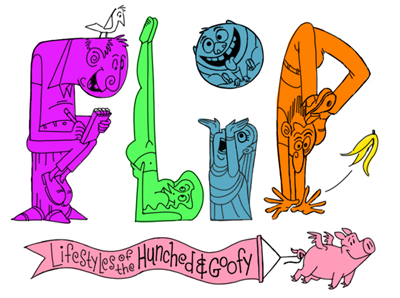Last week I began part-time study for a PGCLTHE, that is to say a Post Graduate Certificate of Learning and Teaching in Higher Education. Not a very snappy title for a course but, If you want to teach in higher education in the UK, at least in the public sector (which is almost all of it), this is a piece of paper you must have.
I have been teaching animation in schools all over the world for over 15 years and I adore it. I love seeing the light come on when students start to "get it", and the sense of achievement that they get from having successfully done something they thought they could not do. And I think I have figured out pretty well by now what works and what doesn't.
However I have absolutely no formal training in teaching and in order to teach at a university I am required to have a PGCLTHE. So I have to admit I joined up slightly unwillingly. Still, I was looking forward to my first class, hoping that I would learn plenty of new stuff to make me a better teacher.
The odd thing is, the PGCLTHE doesn't seem to be about teaching at all. In fact, I am not at all sure what it is about. During a 3 hour lecture I didn't understand anything the instructors said. Actually, it was worse than that. I thought I understood, but it turned out I didn't. The things I thought I knew turned out to be completely wrong. It was as if I had stepped into an alternate universe.
The class was about digital portfolios. The instructor, Julie, asked the class if we knew what a digital portfolio was. Well, I thought easy stuff, and put my hand up. "A digital portfolio is a website or a blog, showcasing your best work" (We animators know about these - we all have one). Yes, said Julie, enthusiastically, that's right. "And what is it for?" Well, "to get a job", I replied. "yes", said Julie, but in a tone of voice that meant "no".
The digital portfolio, Julie explained, was to be our first exercise, - to build one. Excellent, I thought smugly, I already have two websites, a blog, and an online animation school. This will be a doddle - I have already done the work.
Except that it turned out that an online portfolio or blog was not what Julie was talking about at all. It finally dawned on me that what she meant by a digital portfolio was something entirely new to me - something called an electronic academic portfolio, or "eApp" - a sort of internal invitation-only site where I am supposed to write "dimensions and "documents" which "cross reference one another" with "tags".
"I'm sorry Julie", I said, "but I have no idea what you're talking about".
"Well..." Julie began, looking a little anxious that I was being so slow. At this point Jim, the course leader, took over. "It's about professionalism", he explained. "It's your professional journey". But what is it for? I asked, baffled. Patiently, Jim tried to explain. "It is about your "learning and teaching philosophy". "It maps what you do", he said. "It logs your journey". "But what goes in it?" I asked. Jim tried to explain again, talking to me as if I were very young and very dim. He used the word "professional" a lot, and made round inclusive gestures with his hands. I still didn't understand though, but I stopped asking questions because I could see I was getting on their nerves.
Later on I went through the online documents to try and figure it out. As it turns out, here's an example of the sort of thing that is supposed to go in an eApp:
1. Articulate an overview of professional practice from curriculum design to differentiated delivery with reference to scholarship & pedagogic theory.
Huh?
And:
2. Demonstrate a capacity for sustained reflective & evaluative discussion of teaching practice & for action planning for educational development needs.
I mean, I don't know about you, but I'd say that, whatever teaching is or is not about, it has nothing to do with demonstrating a capacity for sustained reflective & evaluative discussion of teaching practice & for action planning for educational development needs.
What it definitely does have to do with is:
1. Knowing your subject
2. Being enthusiastic
3. Preparing your classes
4. Talking in a clear voice so people can hear you
5. Not talking down to your students
6. Being patient.
After the class, from which I emerged totally depressed, one of my colleagues said to me: "Alex, the thing you have to understand is this: If those that can, do, and those that can't, teach, then those that can't teach - teach teaching."
--- Alex
--- Alex

No comments:
Post a Comment